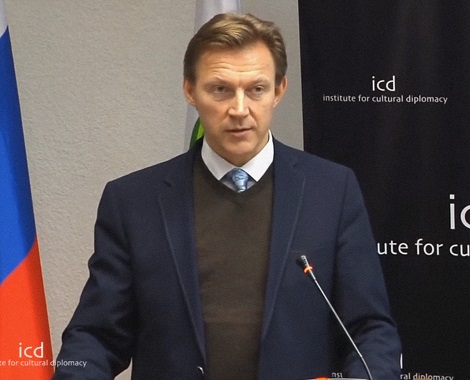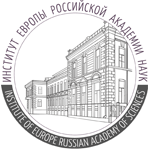institute of europe
the institute of europe of the russian academy of sciences
Aleksej Gromyko: The EU Must Also Participate in the Return to Dialogue
- 19 August 2025
On August 19, 2025, Agenda Domani commented on Aleksej Gromyko’s (Director of the Institute of Europe RAS) recent interview in Corriere della Sera.
On August 18, 2025, Italy’s most important newspaper, Corriere della Sera, published an interview by Marco Imarisio with Aleksej Gromyko, director of the Institute of Europe (IE) at the Russian Academy of Sciences (RAS), discussing the repercussions of the August 15 summit in Alaska between the presidents of the United States and Russia, as well as relations between Russia and the European Union.
Gromyko comes from a distinguished diplomatic lineag – he is the grandson of Andrei Gromyko, the historic foreign minister of the Soviet Union. Aleksej Gromyko is a man who knows and loves Europe. An expert in international politics, he heads the IE, RAS’s European studies center, which publishes rigorous and independent analyses on major European countries – something this writer recently witnessed firsthand while preparing a presentation on the latest IE-RAS report on Italy.
For these reasons, he can be considered one of the most authoritative voices within the more dialogue-oriented faction of Russian leadership. In 2022, he was not reappointed to the scientific committee of the Russian Security Council after signing a document expressing “extreme concern” over the conflict in Ukraine.
Precisely because of this, his analysis deserves attention – even when it critiques certain EU decisions – as it is grounded in the conviction that “respectful discussion is the most effective way to bring opposing sides closer together.”
In this interview, Gromyko reminds the EU that without a return to dialogue – which also entails listening to the other side’s arguments – no lasting solutions can be found. Because, as he warns, the essence of the Anchorage summit was precisely the “return of the U.S. to a measured dialogue with Russia, aimed at normalizing relations.” However, in Gromyko’s view, normalization should extend not only to Russia and Ukraine but also to Russia, the U.S., and NATO.
“Thinking only about how to inflict defeat,” he observes, “is a diplomatic substitute that humiliates Europe’s great diplomatic tradition.“
This seems like an indirect response to the tone of certain appeals circulating in European public opinion – such as the one by Bill Emmott, former editor of The Economist, in another major Italian newspaper, La Stampa, on August 17, 2025, arguing that “Above all else, Europe must demonstrate its willingness to harm Russia.“
The true diplomacy Gromyko advocates is “an attitude of respect toward the other side and the recognition of their right to pursue their own interests, the willingness to stop wars rather than prolong them.“
In this regard, the IE director reluctantly notes that “Europe in recent months has put on a pitiful spectacle, seeking not to play a meaningful role in resolving the Ukrainian crisis but only to ensure Russia emerges as the loser.” His harsh conclusion: “A dangerous mistake, an illusion at best. This is not diplomacy, but a poor substitute.“
Yet, precisely because these criticisms are not meant to fuel sterile polemics or propaganda but stem from a deep understanding of international relations and a spirit of dialogue, it is important – both in Italy and the EU – to engage with Gromyko’s views with equal honesty and frankness. This is also necessary to avoid the risk of the EU excluding itself from the tables that matter in shaping a new European security architecture and a new global governance.
Yesterday’s multilateral summit at the White House (on August 18, 2025) – attended by seven European leaders, including Italian Prime Minister Meloni, as well as Ukrainian President Zelensky and U.S. President Trump – though unconventional and somewhat irregular for representatives of major European states, may (we hope) mark the starting point for a change in approach.
As Professor Marco Ricceri, Secretary-General of Eurispes (whose scientific committee includes the Russian scholar), argues, the reflections expressed by Aleksej Gromyko in his Corriere della Sera interview are “important considerations on the fundamental role of diplomacy and the EU’s position“.
https://www.agendadomani.it/?p=16635 
